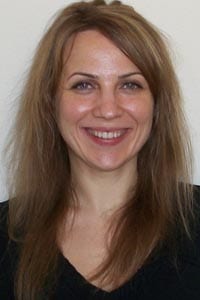Students further along in college are most comfortable with biobanks; reasons cited were altruism, desire to advance scientific research and to help find cures for diseases
A majority of college students is receptive to donating blood or other genetic material for scientific research, according to a new study from Southern Methodist University, Dallas.
In what appears to be the first study to gauge college students’ willingness to donate to a genetic biobank, the study surveyed 250 male and female undergraduate and graduate students.
Among those surveyed, 64 percent said they were willing to donate to a biobank, said study author Olivia Adolphson. Students filled out a two-page survey with 18 questions designed to assess their willingness to participate in a biobank, an archive of blood and tissue samples donated by individuals for the purpose of genetic research.
Student reasons include altruism, while barriers were privacy and lack of time
“Overall I found that my sample was very willing to participate in a biobank,” said Adolphson, an undergraduate psychology researcher at SMU. “The reasons cited were altruism — people want to help others — as well as to advance scientific research and to help find cures. The barriers were concerns about privacy, lack of time, lack of interest and lack of knowledge.”
Also from the study, students with a family health history of cancer, heart disease, high blood pressure, Alzheimer’s, diabetes and other diseases were not more motivated than other students to donate to a biobank, Adolphson said.
Adolphson has been invited to present two posters on her study, “College Students’ Perceptions of Genetic Biobanking,” in April at the 33rd Annual Meeting and Scientific Sessions of the Society of Behavioral Medicine in New Orleans.
First study of its kind to look at college students in the United States
“This appears to be the first study to gauge college students’ willingness to donate to a genetic biobank,” said licensed clinical psychologist and the study’s principal investigator Georita Frierson, an SMU assistant professor and health behaviors expert.
Of the students surveyed, 73 percent self-identified as white, while 27 percent self-identified as an ethnic minority. Before being given a description of a genetic biobank, 36 percent said they’d heard of the term. After being informed, 64 percent said they were willing to participate.
“Overall I found that the students who were more educated, the seniors, were more familiar with the concept of a biobank, and they were also more comfortable with it,” Adolphson said. “So we think education plays a role in acceptance.”
The research indicates that the medical community should do more to inform people about biobanks, Adolphson said.
Biobanks should educate people to familiarize them with concept
“The biobank community needs to educate people. And they need to use simple language that isn’t intimidating, because lack of knowledge is a big barrier,” she said. “From this research we saw that younger people are going to be willing to participate, because they are open-minded about the concept of research.”
Adolphson’s research followed a larger study by Frierson, which surveyed 135 adult Dallas-area residents who also attended one of Frierson’s 28 focus groups on the subject of biobanks. That study found that 81 percent of the participants had never heard of biobanking. Before the educational focus groups, 64 percent said they would participate in a biobank. After focus groups, that number significantly jumped to 90 percent, Frierson said. — Margaret Allen
SMU is a nationally ranked private university in Dallas founded 100 years ago. Today, SMU enrolls nearly 11,000 students who benefit from the academic opportunities and international reach of seven degree-granting schools. For more information see www.smu.edu.
SMU has an uplink facility located on campus for live TV, radio, or online interviews. To speak with an SMU expert or book an SMU guest in the studio, call SMU News & Communications at 214-768-7650.
 To book a live or taped interview with Olivia Adolphson or Georita Frierson in the SMU
To book a live or taped interview with Olivia Adolphson or Georita Frierson in the SMU  Study: Nearly two-thirds of EU citizens are marginalized by English-language dominance
Study: Nearly two-thirds of EU citizens are marginalized by English-language dominance From ‘Green Card’ to ‘Thin Blue Line’: Lawtalk research looks at popular legal expressions
From ‘Green Card’ to ‘Thin Blue Line’: Lawtalk research looks at popular legal expressions Public health insurance provides insured infants better, less costly care than private plans
Public health insurance provides insured infants better, less costly care than private plans Anthropology study finds that immigrants from India and Vietnam become American over time
Anthropology study finds that immigrants from India and Vietnam become American over time CERN scientists find hints of Higgs boson — “God” particle
CERN scientists find hints of Higgs boson — “God” particle